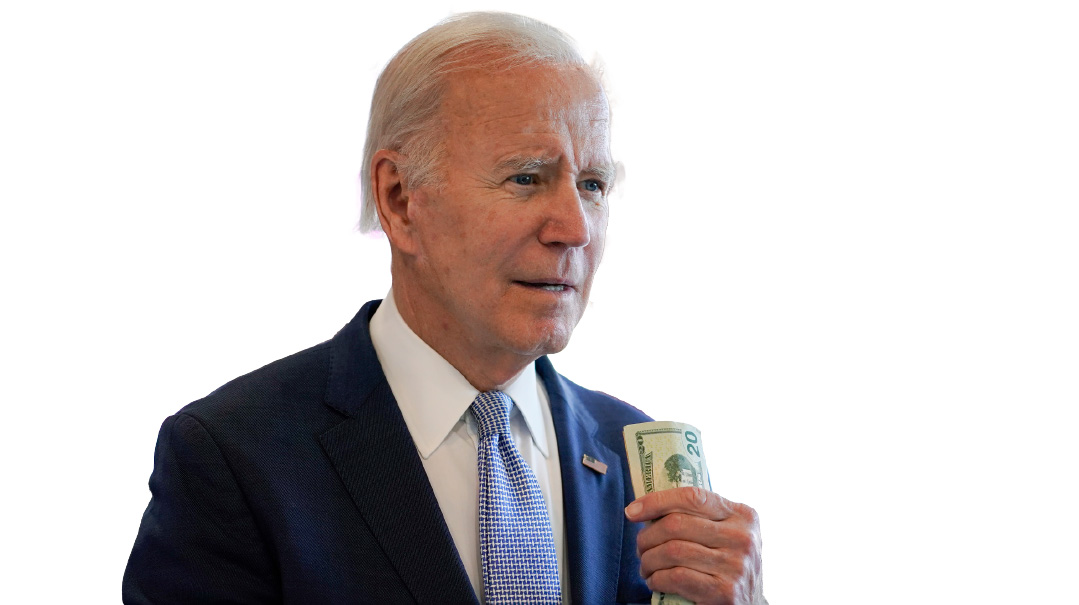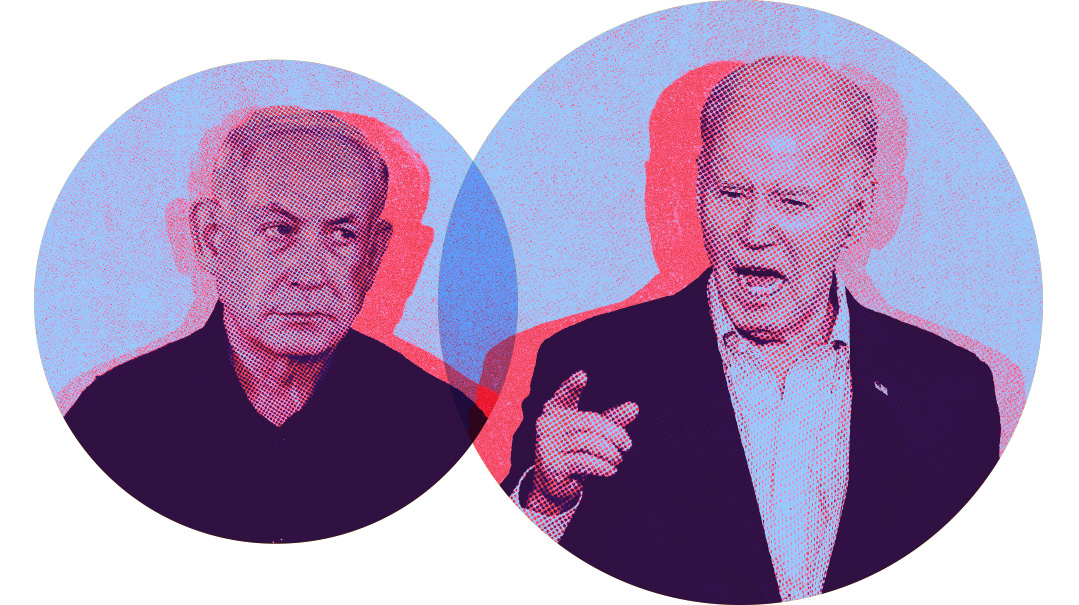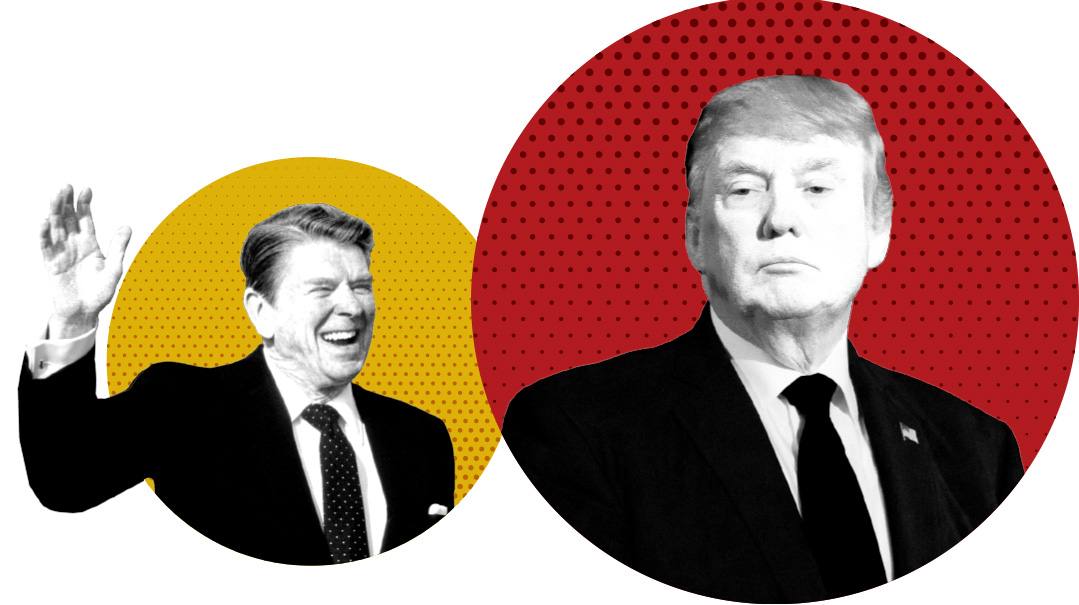The Presidency Is for Sale

If the debate were held today, aside from Trump and DeSantis, only three others — Nikki Haley, Senator Tim Scott, and entrepreneur Vivek Ramaswamy — would make the cut

Photo: AP Images
TO nobody’s surprise, Donald Trump raised far more money — some $35 million — than any other Republican presidential candidate in the second quarter of 2023. It should also come as no shock that Ron DeSantis finished second to Trump, with a $20 million haul from April through June.
By the time you read this column, President Biden’s re-election campaign should have released its second-quarter take, which analysts will scrutinize to see how far he needs to go to match the $1 billion he raised in 2020 and the $2 billion he hopes to raise for 2024.
The fundraising figures for the Republican challengers are far more critical at this stage, with the first debate scheduled in six weeks in Milwaukee. To qualify, a candidate must prove 48 hours before the debate that he or she has raised money from 40,000 individual donors, including a minimum of 200 donors from 20 states. It might sound easy for people with national name recognition, but it hasn’t been. If the debate were held today, aside from Trump and DeSantis, only three others — Nikki Haley, Senator Tim Scott, and entrepreneur Vivek Ramaswamy — would make the cut, although both Mike Pence and Chris Christie insist they will qualify.
With Trump’s bulging wallet and a wide lead in the polls, the only chance any rival has of catching up is by dominating the competition in the nationally televised debate.
If someone should catch fire, then pay heed — not just to the first post-debate poll, but to the second one taken after the initial excitement wears off. If a candidate shows momentum in closing the gap with Trump, then just maybe we will have a horse race. Especially since some of the biggest donors among political action committees (PACs) such as Americans for Prosperity and Club for Growth are yearning for a candidate not named Trump. They haven’t coalesced around any specific challenger, and they won’t until they see if anyone else is viable.
While we await the Biden figures, most pundits have noted that the president’s re-election campaign is off to a sleepy start. Reporters have noted low attendance at Biden fundraisers — and this, even after organizers have cut the entry fees on some events to attract attendees.
If the Biden fundraising number comes in way above expectations, that should lay those concerns to rest, but even if it doesn’t, Biden has one major advantage that no one else has.
The incumbency. And with that, the ability to throw money around at problems that concern the American people, rather than spending schnorrer’s gelt on campaign ads.
For the past few weeks, Biden and several cabinet officials have crisscrossed the country, touting the impact of Biden administration spending programs on the US economy, in a tour they call “Investing in America.”
They’re also using the term “Bidenomics,” a very unoriginal nickname pirated from the term Reaganomics coined in the 1980s when Ronald Reagan was cutting taxes and raising spending to boost growth and Joe Biden was a fresh-faced senator from Delaware.
Call it what you will, Team Biden’s message is that their signature economic bills to invest in infrastructure, clean energy, and chip manufacturing, among others, are boosting employment and the economy even as the Federal Reserve Board (Fed) raises borrowing costs to slam the brakes on inflation. And all the president’s men persist in pointing out that Republicans, who are supposed to be the pro-business party, voted against most of those measures.
While a recent Associated Press poll shows that only 34% of those surveyed approve of Biden’s economic management, one important measurement shows that Americans are optimistic. After bottoming a year ago at 50%, the latest University of Michigan consumer sentiment survey shows 64% hold positive attitudes about the economy’s direction and expect inflation to stabilize at 3%.
Biden has a long way to go to bridge that gap between how Americans rate his job performance and how they feel as consumers, but optimism is contagious. The longer he traverses the country with a positive message, the more likely it is to sink in.
Vote Early, Not Often
Money may not buy you the White House, but you can’t get anywhere close to the campaign trail without it.
The 2020 election cycle broke all records, with candidates nationwide spending $14.4 billion to run for public office. Presidential candidates spent $5.7 billion while Congressional campaign spending topped $8.7 billion. That’s twice the amount that candidates spent in 2016, according to Open Secrets, a nonprofit that follows the money trail in politics.
Democrats outspent Republicans by a wide margin, even if you exclude the money that a couple of wealthy individual Democrats, including Michael Bloomberg, invested in themselves.
This should be a warning sign for Republicans heading into 2024.
Another warning sign, this one counterintuitive, should come from Mollie Hemingway, editor of the Federalist and a Fox News contributor, who contends that campaigning matters less than it used to and that elections have turned into ballot-harvesting operations in which Democrats have perfected the art.
One thing we can hope for next year is that the victor wins by such a landslide that nobody can claim the election was stolen, but there is no reason for Republicans to allow Democrats to monopolize the ballot-farming business.
Back in the spring of 2020, I wrote in this column that President Trump was making a mistake by debasing the concept of early voting. Forty-six states have some form of early voting. The concept has been around for more than 20 years. As Adrian Mitchell, the CFO of Macy’s, once said to an interviewer on Bloomberg News, convenience never reverses itself in retail.
It won’t reverse itself in elections either. Voters like the flexibility and can’t be expected to stand in long lines on Election Day, when they may be busy, sick, or out of town.
In the past two years, Ballotpedia reports that state legislators have introduced a total of 60 bills to tighten security and availability at drop boxes where voters can return mail-in ballots. Just five have become law, so while it’s a drop in the bucket, it’s a step in the right direction.
Republicans should embrace this process while doing everything in their power to demand and ensure an honest vote that all Americans can trust.
(Originally featured in Mishpacha, Issue 969)
Oops! We could not locate your form.







